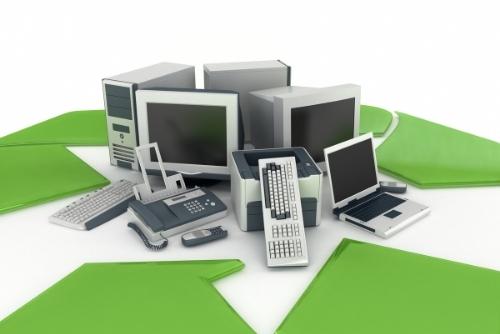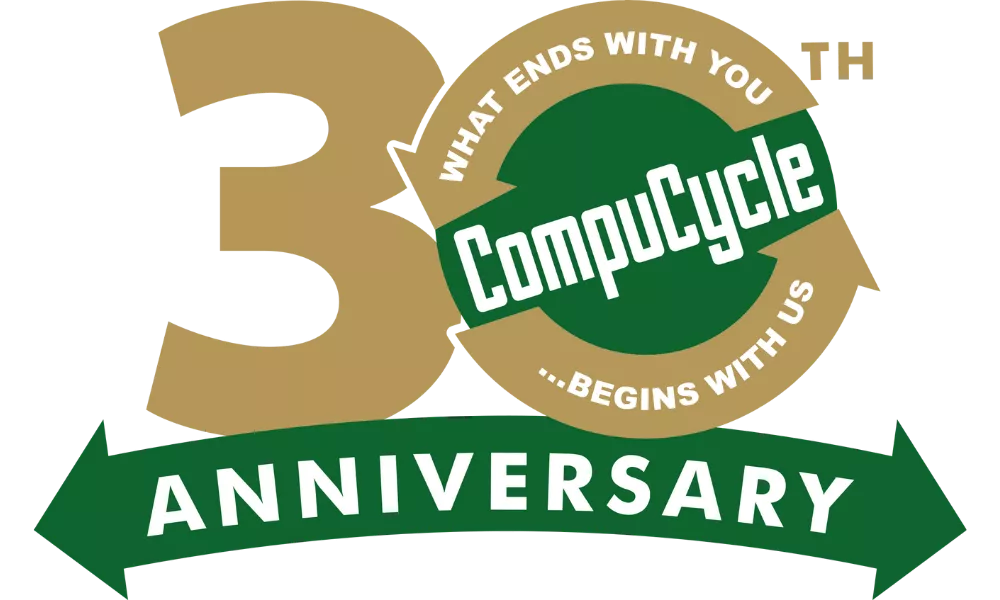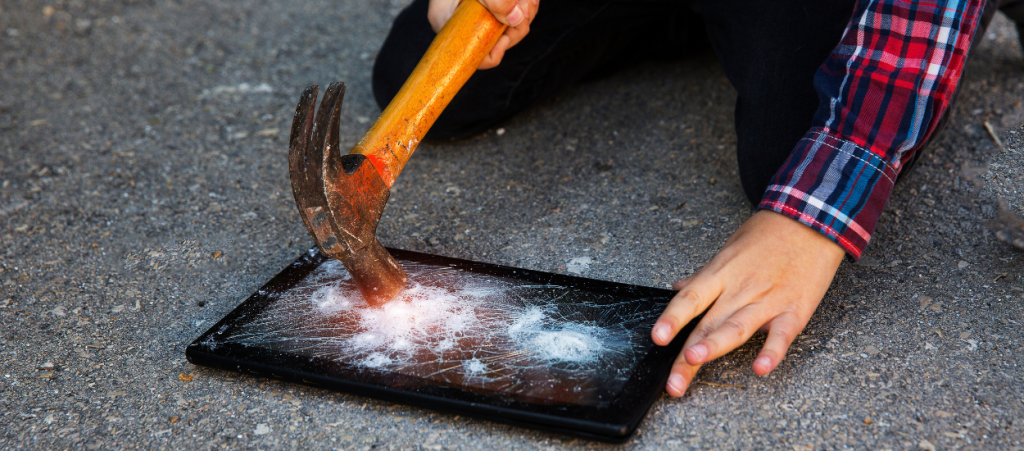
Almost all of us use computers in our homes and at work. Most of the economic activities in today’s digital world are either connected with computers in some way or directly require computing processes. When computer technology gets updated or, like every electronic device, our computers become obsolete or cease to function, the need for getting rid of them arises. Corporate businesses are met with this need much more often as they are home to a huge number of desktop computers and laptops. Responsible e-recycling is the best way to go about getting rid of your machines to ensure data as well as environmental protection.
In this article, we will take a look at all the parts and materials of computers that can be recycled. But first, let us discuss the benefits of computer and electronic waste recycling.

Benefits of E-Waste Recycling
Throwing away your computers and other electronics does not offer any benefits to you or your business. Instead, they make their way to different landfills and negatively impact the environment. Furthermore, the confidential data and sensitive information about your company or your customers that was previously stored on your computers or other electronics are at risk of reaching ill-meaning hands if you do not opt for secure e-waste solutions. These disadvantages can get you in legal trouble for being irresponsible towards consumer privacy and data protection as well as the environment.
On the other hand, when you hand over your e-scrap to a certified e-waste recycling business, like CompuCycle, the confidential data of your business, employees, and customers remains completely secure, and you also receive value against the computers and electronics that you do not need anymore. Furthermore, electronic waste disposal processes that such responsible e-cycling companies employ are environmental-friendly. This keeps your business safe from legal implications and hefty penalties and allows it to be green. Also, e-recycling provides other businesses and individuals with access to the technology, resources, and tools at much cheaper prices.
Recyclable Materials in Your Computer
A computer consists of circuit boards, non-ferrous and ferrous metals, plastic, and glass, etc. Only 2% of the materials that a computer is made up of are non-recyclable. The computer accessories include hard drives, printers, and monitors, and they, along with other components, also contain materials that are recyclable.
The specific parts of a computer that can and should be recycled include, but are not limited to:
- Printer cartridges
- CMOS Battery
- Circuit boards
- Power cord
- Ray tube
- CD or DVD ROM
- Cables
- Aluminum or plastic casing
- Keyboard
- Glass monitor
- Motherboard
- Graphics, SSD, and audio cards
Similarly, the materials that the computer parts are made up of, including gold and silicon in the CPU, aluminum that seals the magnetic disk, steel and copper in the optical drive, and silver, glass, and plastic, etc., that constitute other components of the computer.
What Can You Do About It?
Whether you represent a business or are just an individual that is looking for a responsible way for electronic waste disposal, e-waste recycling is the go-to option for you. When you provide a certified and responsible e-cycling service for your end-of-life electronics, they comprehensively test and refurbish them for reuse, provided they have some functionality left in them. These reusable electronics are resold in the market, offering your business value against them and other businesses the opportunity to utilize cost-efficient devices.
If the electronics you hand over to an e-waste recycling business are not reusable, they shred them before taking out the recyclable materials (mentioned above) from the shredded e-scrap and sending it for reuse in the production of other products. The 2% remaining shredded pieces are disposed of in a responsible and environmentally-friendly manner. Throughout the electronic waste recycling process, the data stored on your computers and other electronics are kept completely safe and away from all kinds of threats.
However, not every e-waste recycling business is equal or offers the same services. Therefore, you need to choose an e-recycling partner that is R2 certified and credible. CompuCycle is an e-waste recycling business that offers proper documentation to corporate businesses after performing e-waste recycling services for them. It has a strong network of ready-to-buy vendors that are always on the lookout for refurbished electronics. This means that you can expect a good value against your e-scrap by partnering with the e-cycling company.
Now that you know that the computers that your organization uses hold so many materials that are recyclable, you understand the potential impact you can make on climate change. To ensure that 98% of the materials in your computers that are recyclable are responsibly recycled and disposed of, get in touch with CompuCycle today to schedule a pickup of your electronics or an e-waste drop-off. By doing so, you can be sure that your e-scrap is not impacting the environment in any negative ways and your confidential, private, and sensitive data to be completely secure.
Recent Articles
Goodwill Houston Partners with CompuCycle to Offer Simple, Responsible Electronics Recycling for the Community
Goodwill Houston and CompuCycle have partnered to give Houstonians a simple, trustworthy way to donate and recycle household electronics.
Through this collaboration, residents can drop off laptops, desktops, tablets, monitors, and other household electronics at participating Goodwill Greater Houston donation centers. Reusable items help fund Goodwill’s job training and community programs, while non-resellable electronics are sent directly to CompuCycle’s certified Houston facility for secure, fully in-house recycling—ensuring materials are responsibly processed locally from start to finish.
CompuCycle Becomes Exclusive Woman-Owned E-Waste Processor in Texas with ISO 27001 Data Security Certification
New Information Security Management System (ISMS) Certification Guarantees End-to-End Data Confidentiality and Integrity for Corporate IT Asset Disposition (ITAD). HOUSTON, TX – December 9, 2025 – CompuCycle, an industry leader in secure and sustainable IT…
Secure Electronics Disposal in Houston: Why the City’s Largest Industries Trust CompuCycle
When a major healthcare system decommissions thousands of laptops, or an oil and gas company retires an entire data center, one question comes up again and again: What happens to all that data — and…
CompuCycle Executives Join R2 TAC and e-Stewards Leadership Council to Advance ITAD Standards
Houston-based ITAD provider deepens its industry influence through active participation in standard-setting committees. As corporate ITAD needs evolve alongside stricter compliance and ESG requirements, CompuCycle continues to lead the way—this time by contributing directly to…
CompuCycle Executives Join R2 TAC and e-Stewards Leadership Council to Advance ITAD Standards
I’m Just a Computer: A Journey Through ITAD Recycling
Is There a Wrong Way to Recycle Electronics?
- « Previous
- 1
- 2
- 3
- Next »



